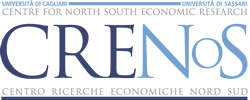Energy and Environmental Synergy: Cooperative Strategies for the Euro-Mediterranean Transition
| Title | Energy and Environmental Synergy: Cooperative Strategies for the Euro-Mediterranean Transition |
| Publication Type | Working Paper |
| Year of Publication | 2024 |
| Authors | Saba, R, Pireddu, A |
| Number | 24_09 |
| ISBN Number | 978 88 68515 195 |
| Abstract | The European decarbonisation pathway, initiated by the Green Deal and reinforced by RePowerEU and the ‘Fit for 55’ package, emphasizes the critical role of sustainable energy transition for both the EU and the Mediterranean region. This shift requires rapid adoption of renewable energy, phasing out fossil fuels, and developing green hydrogen and Power to X technologies. Consequently, expanding and advancing electricity infrastructures, such as grids and storage systems, is essential to manage increased electrification and distributed energy production and consumption. Italy faces significant delays in connecting projects to the national grid, highlighting the need for urgent infrastructural improvements. Investments by TERNA and ENEL aim to enhance grid integration within Italy and between European and Mediterranean transmission systems. Benefits of transnational energy integration include delaying new fossil-fuelled power plants, reducing reserve capacity needs, lowering system costs, and enhancing energy sharing, reliability, and competition. The EU's strategic pursuit of energy integration is underscored by geopolitical tensions emphasizing the importance of cross-border energy flows and diversified electricity suppliers. The Joint Communication for a 'Renewed Partnership with the Southern Neighbourhood' focuses on low-carbon energy transition, renewable energy, and clean hydrogen. The Mediterranean region's abundant solar and wind resources present significant cooperation opportunities in clean energy, particularly hydrogen production. Key projects like the ELMED-TUNITA and regional initiatives such as the Eight Country Interconnection Project facilitate energy sharing and stability. Italy's potential as an energy hub in the Euro-Mediterranean network is evident, primarily focusing on electricity and renewable energy sources. Sardinia plays a crucial role with ambitious targets for renewable energy to support the energy transition. Future energy cooperation between Europe and the Mediterranean will depend on harmonizing legal frameworks, sharing climate goals, and increasing financial resources. Ensuring a 'just' transition, based on equity and solidarity, is essential for sustainable development and balanced growth in the Mediterranean. |
| Citation Key | 8572 |
| Attachment | Size |
|---|---|
| 1.1 MB |
